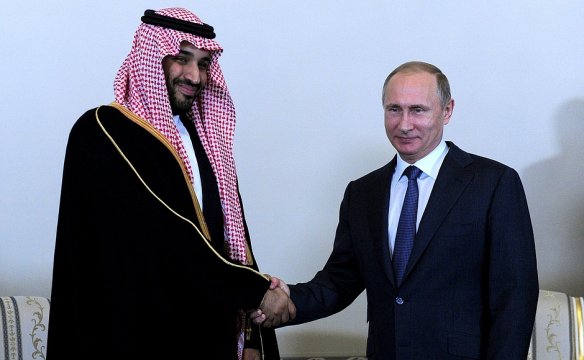
Not very sincere smiles: Putin meeting with Prince Mohammed bin Salman at the St. Petersburg economic forum.
“Russia has been rather ambivalent about striking the deal, not because it is worried about the Iranian nuclear program, but because it is worried about the Iranian oil,” said Pavel K. Baev, a researcher at the Peace Research Institute in Oslo.
Mr. Baev noted that at several crucial points in the long negotiations, Russia had seemed to be working to complicate things. In November, for example, it announced a new deal to build nuclear reactors in Iran, and in April said it was resuming the sale of S-300 surface-to-air missiles that Iran had ordered before a 2010 arms embargo was authorized by the United Nations Security Council.
“In the crucial final stage of negotiations, however, Moscow refrained from any spoiling,” Mr. Baev said, adding that “the real influence behind this self-restraint, in my opinion, is China, which wanted the deal concluded and impressed upon Russia the undesirability of any sabotage.”
For the rest of the article, see New York Times, July 15.